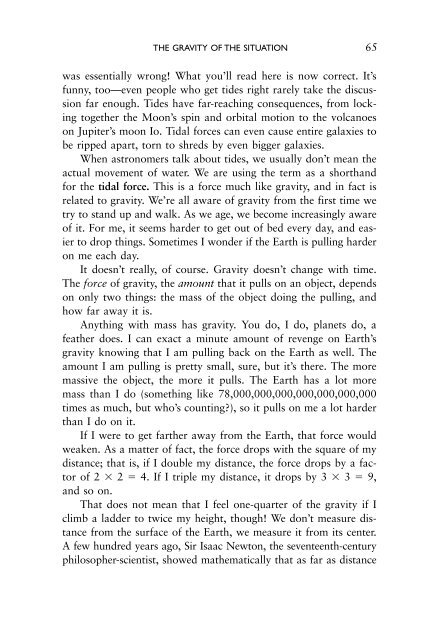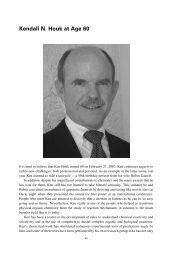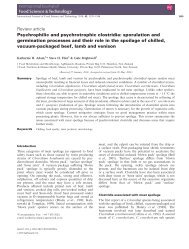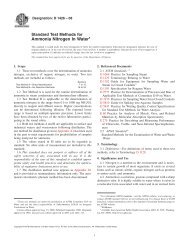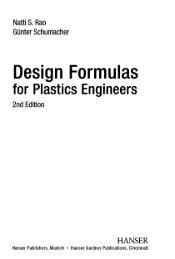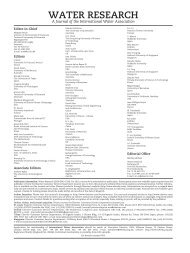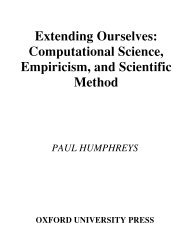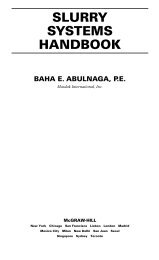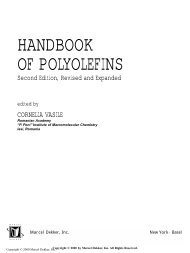Bad Astronomy: Misconceptions and Misuses Revealed, from ...
Bad Astronomy: Misconceptions and Misuses Revealed, from ...
Bad Astronomy: Misconceptions and Misuses Revealed, from ...
Create successful ePaper yourself
Turn your PDF publications into a flip-book with our unique Google optimized e-Paper software.
THE GRAVITY OF THE SITUATION 65<br />
was essentially wrong! What you’ll read here is now correct. It’s<br />
funny, too—even people who get tides right rarely take the discussion<br />
far enough. Tides have far-reaching consequences, <strong>from</strong> locking<br />
together the Moon’s spin <strong>and</strong> orbital motion to the volcanoes<br />
on Jupiter’s moon Io. Tidal forces can even cause entire galaxies to<br />
be ripped apart, torn to shreds by even bigger galaxies.<br />
When astronomers talk about tides, we usually don’t mean the<br />
actual movement of water. We are using the term as a shorth<strong>and</strong><br />
for the tidal force. This is a force much like gravity, <strong>and</strong> in fact is<br />
related to gravity. We’re all aware of gravity <strong>from</strong> the first time we<br />
try to st<strong>and</strong> up <strong>and</strong> walk. As we age, we become increasingly aware<br />
of it. For me, it seems harder to get out of bed every day, <strong>and</strong> easier<br />
to drop things. Sometimes I wonder if the Earth is pulling harder<br />
on me each day.<br />
It doesn’t really, of course. Gravity doesn’t change with time.<br />
The force of gravity, the amount that it pulls on an object, depends<br />
on only two things: the mass of the object doing the pulling, <strong>and</strong><br />
how far away it is.<br />
Anything with mass has gravity. You do, I do, planets do, a<br />
feather does. I can exact a minute amount of revenge on Earth’s<br />
gravity knowing that I am pulling back on the Earth as well. The<br />
amount I am pulling is pretty small, sure, but it’s there. The more<br />
massive the object, the more it pulls. The Earth has a lot more<br />
mass than I do (something like 78,000,000,000,000,000,000,000<br />
times as much, but who’s counting?), so it pulls on me a lot harder<br />
than I do on it.<br />
If I were to get farther away <strong>from</strong> the Earth, that force would<br />
weaken. As a matter of fact, the force drops with the square of my<br />
distance; that is, if I double my distance, the force drops by a factor<br />
of 2 � 2 � 4. If I triple my distance, it drops by 3 � 3 � 9,<br />
<strong>and</strong> so on.<br />
That does not mean that I feel one-quarter of the gravity if I<br />
climb a ladder to twice my height, though! We don’t measure distance<br />
<strong>from</strong> the surface of the Earth, we measure it <strong>from</strong> its center.<br />
A few hundred years ago, Sir Isaac Newton, the seventeenth-century<br />
philosopher-scientist, showed mathematically that as far as distance


